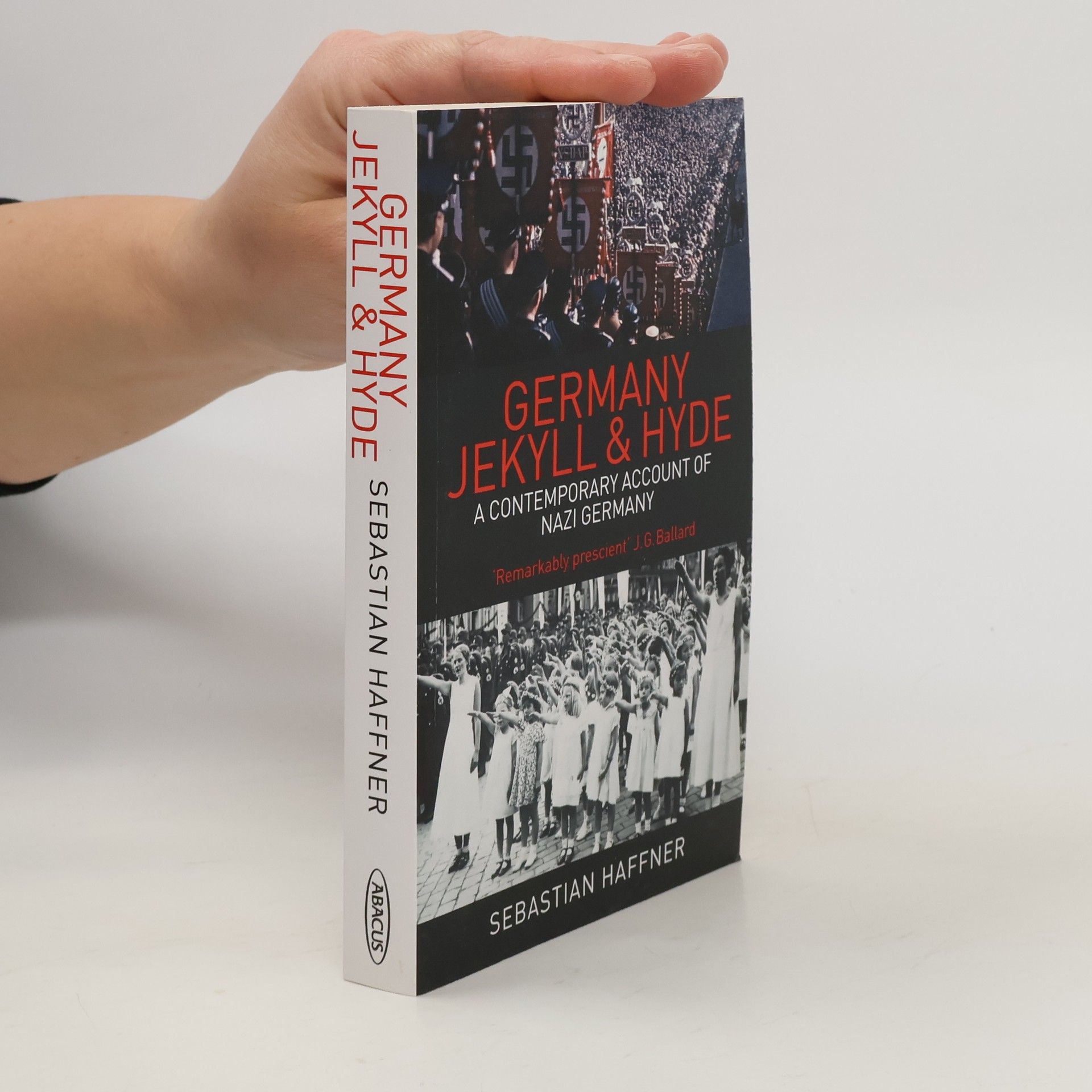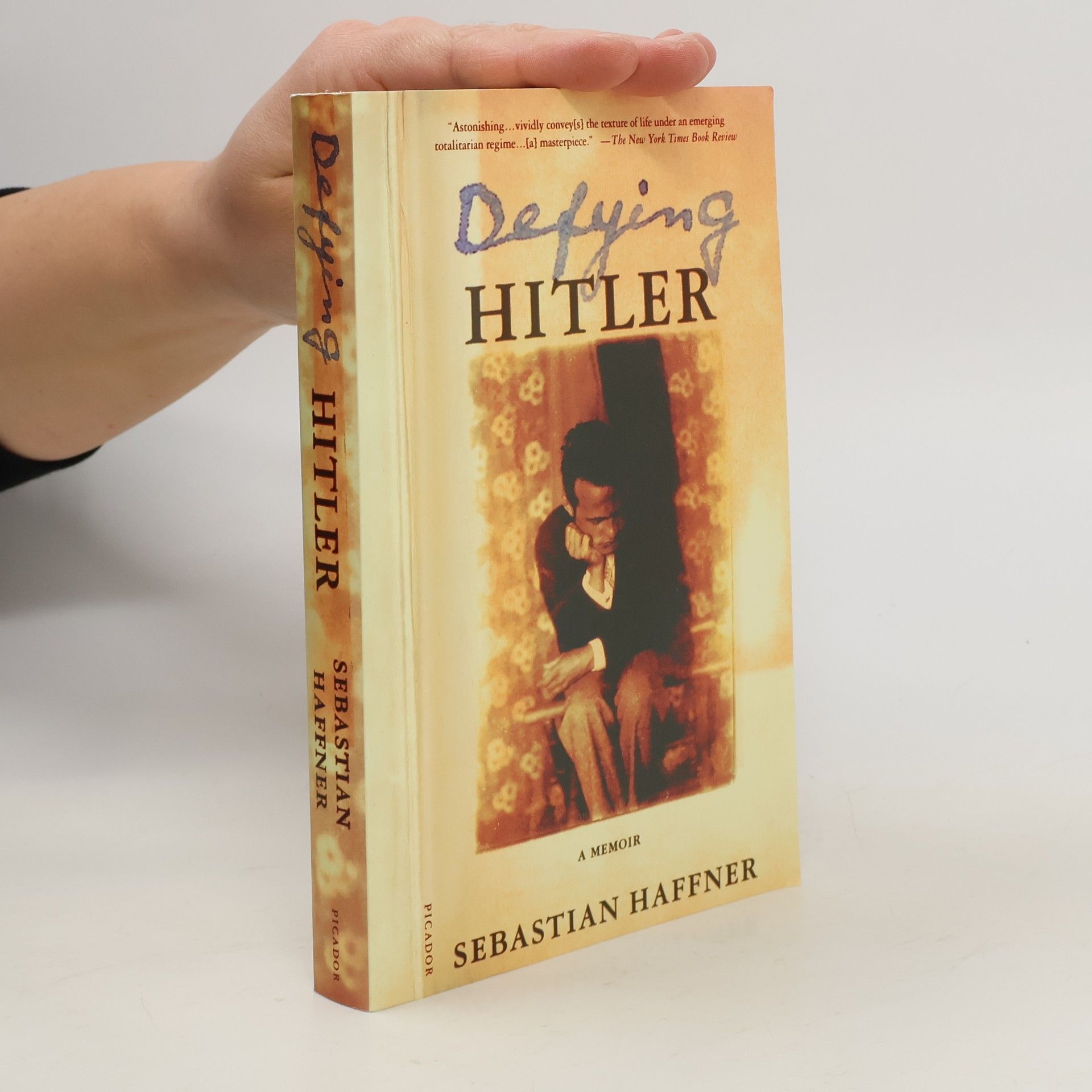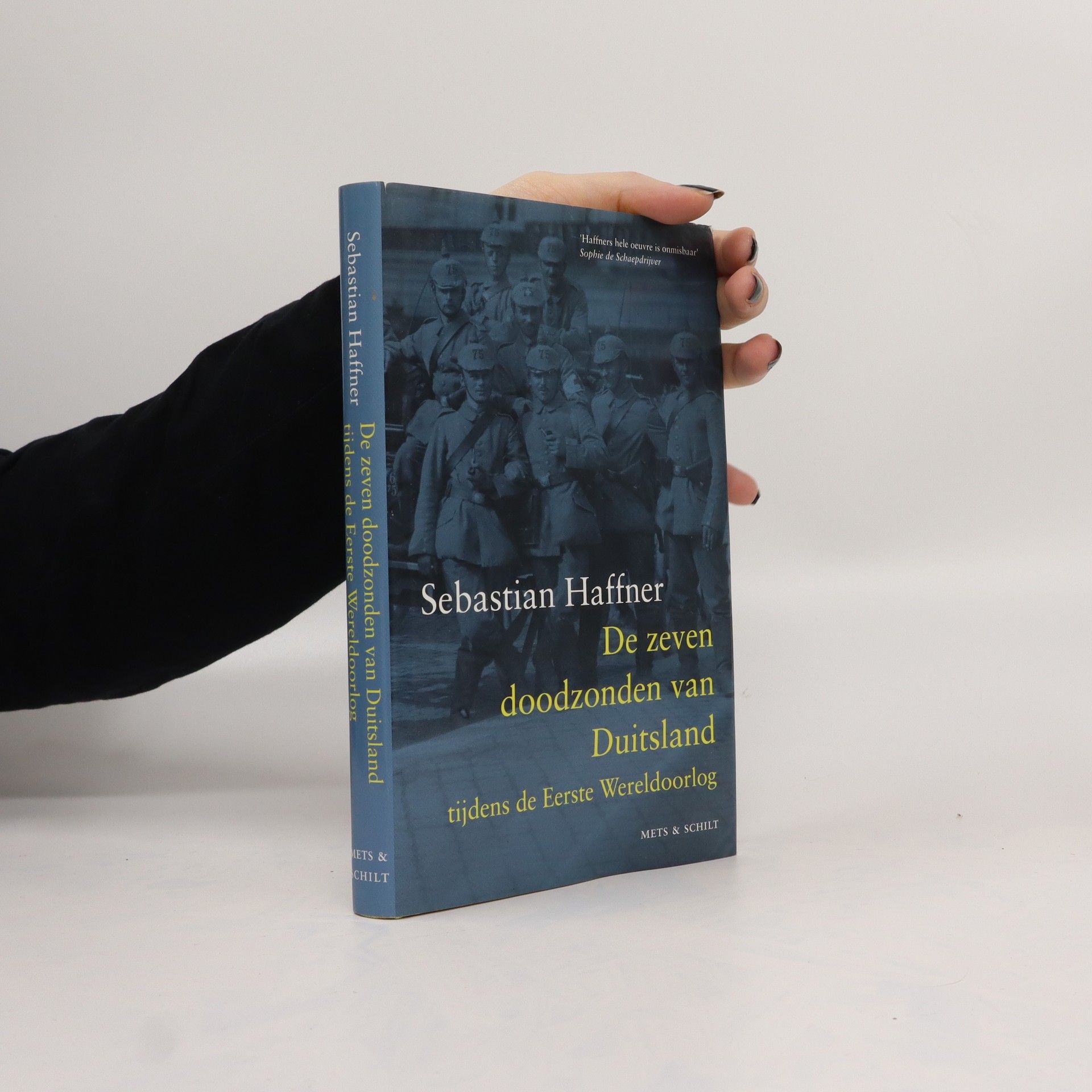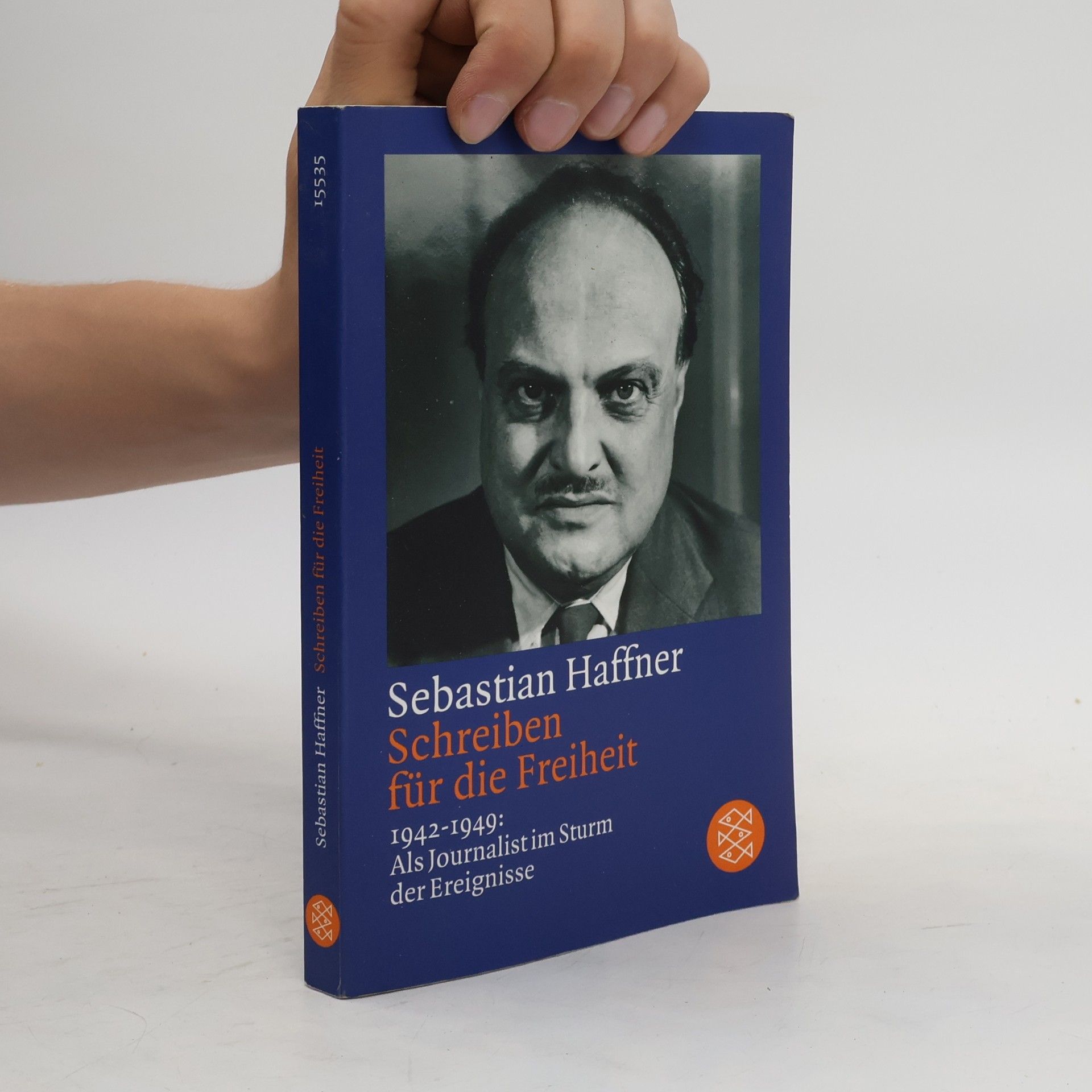In 1964, bij de 50ste herdenking van het begin van WO I, publiceerde de scherpzinnige Duitse journalist-historicus Haffner (1907-99) een prikkelend boek over de Duitse verantwoordelijkheid voor (het verloop van) deze oorlog. Nu, bijna 40 jaar later, is er een Nederlandse vertaling van dit kleine 'pareltje' verschenen. Op een uiterst toegankelijke wijze, helder geformuleerd, laat Haffner zien dat Duitsland tijdens de periode 1914-'18 een aantal volstrekt verkeerde inschattingen en keuzes heeft gemaakt, waardoor de oorlogskansen keerden. Duitsland sloot de ogen voor de werkelijkheid en ook de naoorlogse generaties, uiteindelijk uitmondend in WO II, weigerden de fouten in te zien. Haffners stelling - een staat die niet bereid is van de fouten uit het verleden te leren, is bijkans gedoemd ze keer op keer te herhalen - heeft nog weinig aan actualiteit ingeboet. Gedateerder, en voor de lezer van anno 2002 wat minder begrijpelijk, is het nawoord waarin de auteur de lessen van de Eerste Wereldoorlog van toepassing verklaart op de Bondsrepubliek Duitsland gedurende de periode na 1945. Met verklarend register.
Sebastian Haffner Boeken
Deze auteur richtte zich op de geschiedenis van het Duitse Keizerrijk (1871-1945). Zijn werken onderzochten de oorsprong en het verloop van de Eerste Wereldoorlog, het falen van de Weimarrepubliek en de daaropvolgende opkomst en ondergang van nazi-Duitsland onder Hitler. Hij probeerde complexe historische gebeurtenissen en hun gevolgen te begrijpen. Zijn analyses bieden een diepgaand inzicht in cruciale momenten van de Duitse geschiedenis.







Defying Hitler: A Memoir
- 309bladzijden
- 11 uur lezen
Sebastian Haffner's memoir offers a firsthand account of life in Germany from 1907 to 1933, capturing the tumultuous period leading up to the rise of Nazism. It explores the experiences of ordinary citizens as they navigated significant societal shifts, including the emergence of right-wing militias and the impact of hyperinflation in 1923. Through personal reflections, Haffner illustrates the evolving attitudes and beliefs of the time, providing a compelling narrative of how individuals coped with a rapidly changing political landscape.
An absolute classic of autobiography and history - one of the few books to explore how and why the Germans were seduced by Hitler and Nazism. schovat popis
Germany: Jekyll and Hyde
- 300bladzijden
- 11 uur lezen
Brilliantly insightful analysis of Hitler's Germany first published in 1940.
Die berühmten und einflußreichen Artikel Sebastian Haffners aus dem Londoner Observer zum ersten Mal in deutscher Sprache: Porträts u. a. von Hitler, Goebbels und Speer. Überlegungen zur Kriegslage in Europa, zum Kriegsende 1945, zum Umgang mit den Nazis und zur Politik nach dem Krieg. Und schließlich temperamentvolle Thesen zum Kalten Krieg und zur Bildung zweier deutscher Staaten - mit Porträts u. a. von Louise Schroeder, Kurt Schumacher, Konrad Adenauer und Theodor Heuss.
Die deutsch-russischen Beziehungen vom Ersten zum Zweiten Weltkrieg
Allemagne, 1918
- 223bladzijden
- 8 uur lezen
En 1918, devant la défaite imminente, les huissiers de l'Empire ouvrirent aux dirigeants sociaux-démocrates la porte si longtemps close et les introduisirent, non sans arrière-pensées, dans l'antichambre du pouvoir. Et voilà que les masses se précipitèrent à l'intérieur, bousculèrent leurs dirigeants et les entraînèrent jusqu'à la porte du pouvoir lui-même. La social-démocratie semblait enfin parvenue à son but. Alors ses dirigeants, élevés malgré eux jusqu'au trône vide par la foule de leurs partisans, n'eurent rien de plus pressé que d'ordonner aux anciens gardiens du Palais de mettre tout le monde dehors. Sebastian Haffner raconte la trahison d'un peuple insurgé par ses propres représentants : comment les Ebert, Noske ou Scheidemann, déjà ralliés à l'union sacrée en 1914, consomment la faillite définitive de la social-démocratie. Appelés au pouvoir par le gouvernement impérial pour prévenir une révolution, ils jouent sans faiblir leur rôle, jusqu'à l'écrasement de la révolte de Berlin aux premiers jours de 1919.
»Erst Geschichtsschreibung schafft Geschichte. Geschichte ist keine Realität, sie ist ein Zweig der Literatur«. Mit dem voraufgegangenen Motto verleiht Sebastian Haffner den »Historischen Variationen« einen Grundton, der durch alle Texte schwingt: Präzise, kurz, scharf zugespitzt, mit überraschenden Gedankenwendungen- ein großer Meister der Geschichtsschreibung ergreift das Wort. - Zweihundert Jahre deutscher Geschichte läßt Haffner - kurzweilig und eindringlich, analytisch scharf und mit dem - Blick für weitgespannte historische Entwicklungslinien Revue passieren.



